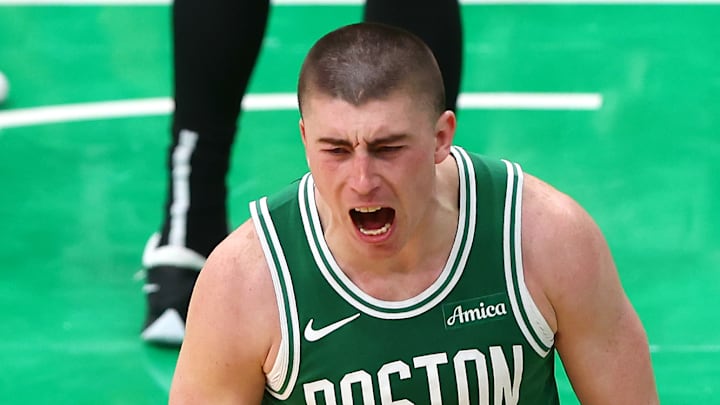Payton Pritchard’s knack for taking and making buzzer-beating heaves could very well be responsible for the NBA’s latest rule change.
According to ESPN’s Shams Charania, the league will encourage more players to fire up last-second shots from distance by no longer counting misses as the player’s, but rather a “team miss.
“The NBA will implement a new change for the 2025-26 season: unsuccessful end-of-period heaves will now be recorded as a missed field-goal attempt for the team, not the player, sources tell ESPN,” Charania wrote in a post to X Wednesday. “Those long heaves will no longer impact an individual player's percentages.”
The NBA will now classify a shot as a “heave” if it comes within the final three seconds of a game’s opening three quarters, is shot from further than 36 feet from the basket, and the play in which it’s a part originates in the backcourt.
That last part is definitely to dissuade players from intentionally moving further from the hoop to try and save their field-goal percentage.
The change was set in motion last summer, as the league decided to test the new rule in G-League games, and later at the 2025 Las Vegas Summer League.
Payton Pritchard likely inspired the NBA's decision
It’s convenient that the decision was made just months after Pritchard made two half-court buzzer beaters in the NBA Finals against the Dallas Mavericks.
Pritchard’s pair of prayers nearly took the roof off of TD Garden. Many will remember watching the shots find the bottom of the net for the rest of their lives. It was that memorable.
Sadly, prior to this change, these moments weren’t plentiful. Many players were afraid to risk their shooting percentages and actually elected to hold the ball while time expired instead of attempting a shot.
This wasn’t a handful of guys either. It was a league-wide trend and clearly grew to be enough of a problem for the league to step in and make this change.
Players’ prioritization of their own percentages over the possibility of helping their team win was always fascinating, to say the least. If you ask Pritchard, it’s plain “soft.”
“Soft mentally,” Pritchard said of this trend during an interview with Jay King of “The Athletic.” “Worrying about a shooting percentage. It’s very weak. You care about your individual shooting percentage more than winning. That’s so soft.”
Thankfully, the tradition will be retired for good, and end-of-quarter scenarios will be all the more exciting for the fans and viewing audience.
